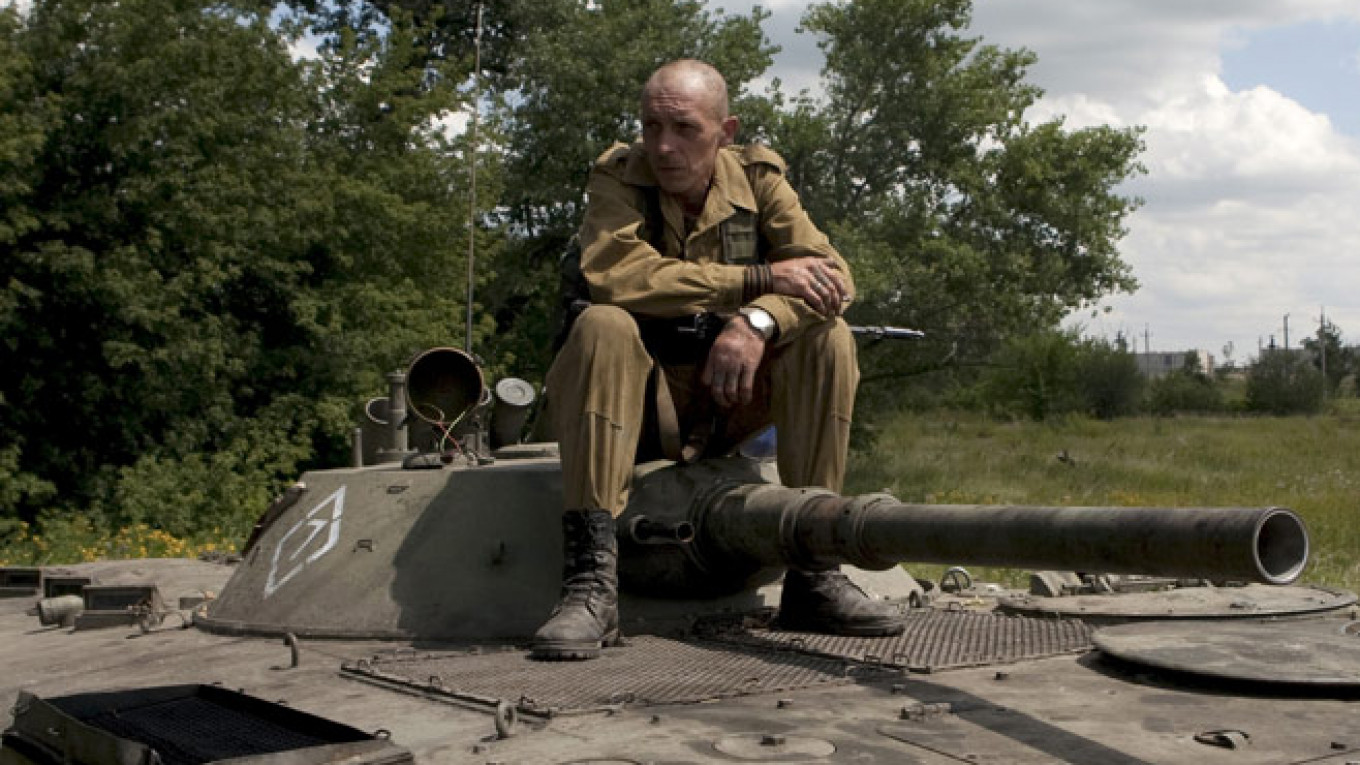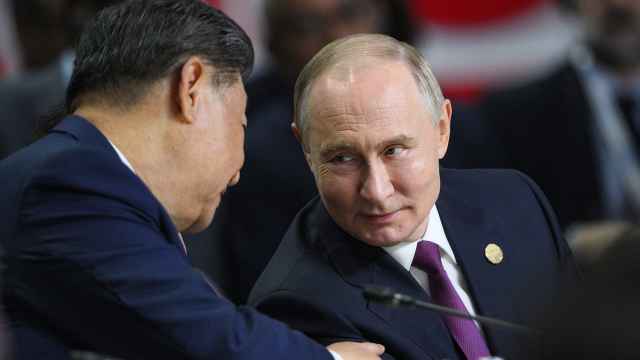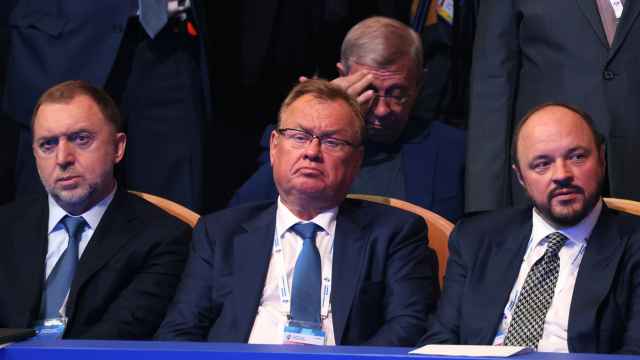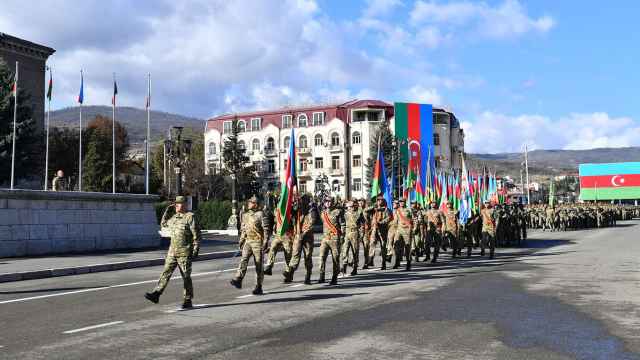Ten days ago Yelena Filippova, secretary to the head of Ukraine's self-proclaimed People's Republic of Donetsk (DPR), Alexander Zakharchenko, was badly injured when her car exploded as she drove to work. That afternoon, a prominent DPR politician was shot and wounded on one of the main streets of the city. With evening came fragmentary reports that a military building in central Donetsk had been blockaded by troops.
Then a senior military officer told interviewers that the DPR Defense Ministry had been "abolished." Throughout all this, Zakharchenko remained silent and invisible. So did his defense minister, Vladimir Kononov, and another power broker, Alexander Khodakovsky, secretary of the rebels' national security council. Moscow was — and remains — tight-lipped.
Finally a few comments seeped out. DPR officials described the car-bombing and street-shooting as political, but went no further. They also stated with no further detail that the blockade of a military building was part of a criminal investigation by the Ministry of State Security.
A senior official, Denis Pushilin, vice speaker of the DPR parliament lashed out at "provocations" by former heroes "of the DPR independence struggle."
Pushilin also announced that the ranking DPR officer who had announced the Defense Ministry's "abolition," Sergei Petrovsky, was not qualified to make such claims; such allegations, he added, could only come from someone who was working for Ukrainian or other enemy intelligence. There was no word from the Defense Ministry.
The flurry of claims and counter-claims is strangely timed.
Persistent but unconfirmed reports in local Donetsk media claim that Vladislav Surkov, President Vladimir Putin's point man on Ukraine, arrived in Donetsk around the time of the first violence.
He does not come often, his visits are usually significant events and one would have thought the DPR, which is profoundly dependent on Moscow for its survival, would be on its best behavior.
But separatists in the east have been going through a month or two of mounting anxiety and tension. Speculation is growing that Moscow has lost interest in Donetsk and Luhansk, but, rather than declaring peace and going home, it wants to concentrate on a longer-term effort to subvert Ukraine politically.
Rumors that Zakharchenko will be replaced have also been circulating and Khodakovsky has been widely described as Zakharchenko's most likely successor. (Khodakovsky dismisses the speculation.)
A former commander of the prewar Ukrainian counter-terror Alpha force in Donetsk region, Khodakovsky has Russia's trust, but is disliked by many other military commanders, especially those who want a swift and decisive resumption of military activities.
The events of past weeks are murky, a reminder that the self-declared separatist entities of eastern Ukraine are unstable. Donetsk is much better organized than Luhansk. But both people's republics are fragmented and could one day simply implode.
Prominent Russia bloggers — including several of the best organized support groups that provide equipment and channel volunteers to the east — have complained of growing crime among high level military and political leaders.
Several blamed the current low-intensity positional warfare for criminality and low morale. And they complained that Moscow's own apparent indecision about what to do next would further undermine the eastern separatist movement.
Moscow has done little to create a working government structure in either Luhansk or Donetsk — a sign, perhaps, that the Kremlin views the separatist entities as short-term expedients.
In both places, leaders and factions are constantly jostling for power in struggles that have ended several times in the death of senior military or political figures. Moreover, Moscow is apparently becoming anxious about what it has created in eastern Ukraine, particularly in terms of a military force.
The rebel military machine is quite large, well armed, but neither particularly well trained or disciplined.
Moscow seems to be trying to consolidate control over the military — squeezing out, some Donetsk observers say, some of the most effective but unruly commanders. But they seem to be facing more resistance than they expected.
There have been other signs of anxiety coming out of Moscow. One of the latest issues of the Voyenno-Promyshlenny Kuryer journal, known for its discussion of fashionable issues such as hybrid war, carried an article on the U.S. doctrine of "stabilizing operations."
After a long discussion of Iraq and Afghanistan, the article veered off to the Donbass.
It referred to the "endless stream" of contraband, much of it illegal weapons, that has been crossing the Ukrainian-Russian border since fighting started. It warned of the risk of increased criminality on both sides of the border. "We should admit that fighting in the Donbass is a seriously destabilizing factor, which should be urgently nipped in the bud," it said.
Stepping gently round the question of Russian military operations — after all the Kremlin denies any military engagement in eastern Ukraine — the article suggested that "covert participation by the Russian side would not only improve the humanitarian situation, but also facilitate a normal political atmosphere in the south east," one that would thwart "attempts to divide up power, which lead to murders."
If this article in fact reflects thinking within the Kremlin, rebel-held Donetsk may well see more turbulence and unusual nighttime operations.
Paul Quinn-Judge is International Crisis Group's senior adviser for Ukraine and Russia.
A Message from The Moscow Times:
Dear readers,
We are facing unprecedented challenges. Russia's Prosecutor General's Office has designated The Moscow Times as an "undesirable" organization, criminalizing our work and putting our staff at risk of prosecution. This follows our earlier unjust labeling as a "foreign agent."
These actions are direct attempts to silence independent journalism in Russia. The authorities claim our work "discredits the decisions of the Russian leadership." We see things differently: we strive to provide accurate, unbiased reporting on Russia.
We, the journalists of The Moscow Times, refuse to be silenced. But to continue our work, we need your help.
Your support, no matter how small, makes a world of difference. If you can, please support us monthly starting from just $2. It's quick to set up, and every contribution makes a significant impact.
By supporting The Moscow Times, you're defending open, independent journalism in the face of repression. Thank you for standing with us.
Remind me later.






